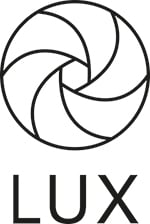Mark Aerial Waller (Born in High Wycombe, UK in 1969, lives and works in London)’s work integrates objects, video and live performance for an experience of video defined in spatial and situational terms. The spectator, art object and its relative position in space and time become an interdisciplinary medium. His feature length film, Time Together (2012), combines daily solar data with local events around the making of a thriller film series, bringing expansive, cosmic scale perception into close proximity with a fictional scenario, set within a documentary environment. Across all Waller’s oeuvre is a consistent questioning of ideas around the transmission and interpretation of culture across time.
To the side of his studio practice, Waller founded The Wayward Canon (2001-onwards), as an artist-led platform for event-based interventions in cinematic practices. It considers how an artist’s work may be ultimately displaced, or transformed by its cross-fertilisation with the work of predecessors and contemporaries. Recent solo presentations include El Canon Rebelde (2020) at CAAM, Gran Canaria, Yoga Horror at Tate Britain (2014) and Projection Apprentice at Mindaugas Triennial, the 11th Baltic Triennial of International Art, CAC Vilnius, Lithuania (2012) and Kafe Pittoresk- L’Experience du Monde Visionnaire, (With Giles Round) Serpentine Gallery, London. Translations of his works exist in French, Italian, Spanish, Lithuanian, Turkish, Korean & Mandarin.
During his residency at LUX Mark will undertake the following research project inspired by the work of filmmaker Owen Land.
The Laughing Cavalier. Owen Land in the 22nd Century
‘George Landow, also known as Owen Land, Orphan Morphan and Apollo Jize (1944-2011) could be rearranged as a Woolen Dagger or A Glowed Goner. His work was irreverent, intellectual and dangerous. It remains a key part of the history of avant garde film but has struggled to find its place in a broader cultural history. Landow’s early film Flemming Falloon (1963/64) was accompanied by this statement:
Landow proposes that if we accept the reality offered to us by the illusion of depth on the flat plane of the screen, we can then assign reality to anything at will. A cinematic equivalent of the illusionistic portraiture of the Flemish painters.
I went with a friend to see Frans Hals, the Flemish portrait show at the Wallace Collection last week. The small exhibition space was walled up with cheeky looking men, painted in Hals’ style of wet-on-wet brush strokes, in a limited pallet, with no attempt to hide the mark of the brush, yet still representing his sitters with convincing vitality. Landow’s film, a series of male portraits, were infused with light spills during processing and reproduced picture-in-picture, the material was evident, kind of cheeky in a high humour way, but also deeply serious, just as that Flemish painter may seem.
My friend told me reproduction Frans Hals Cavaliers found themselves in the front rooms and hallways of working class families in 1980s Britain, coincidently when The Laughing Cavalier was used by McEwan’s beer as its logo. He said its the tragedy. Perhaps a brewer in the next century may use an Owen Land film still. [watch McEwan’s advert on YouTube]
Owen Land’s ‘I Grog and its Alternatives’ (2003) was sent to LUX in 2003 in the form of roughly 200 index cards, each numbered in sequence with a joke neatly handwritten under the top red line. The form of the script does not present directions or descriptions of scenes, but there is a form to the information as well as indications of interest, association and position. A joke demands a listener and a latency for that joke to be received and interpreted. It is then judged, or forgotten. It may demand knowledge of the subject and admission into the thought patterns of the joker. There might be recognition, or it may be obscure. I’m not interested in how funny or not these jokes are – on the whole they are terrible from a conventional perspective, but maybe the jokes show a way towards something unseen, something unutterable, maybe terrifying.
In order to become closer to the script, I am approaching Owen Land’s work through the archive, interviews with fellow artists and fans and performing his cards. Is there a community of Owen Land amongst us, or emerging in 2122?
In parallel to reading the cards, the blog follows the chronology of Owen Land, From Fleming Faloon (1963-4) to Dialogues, or A Waist Is A Terrible Thing To Mind (2007-2009). There should be interviews here too, alongside some stand-up.
Towards the third month I shall be shooting three reels of Super 8 film that may allow for the gap between Owen Land’s script and the place of cinema.





